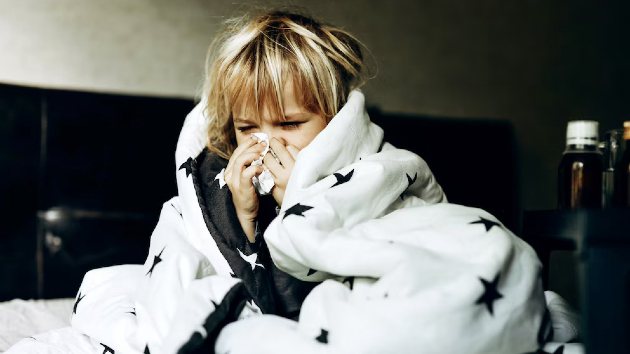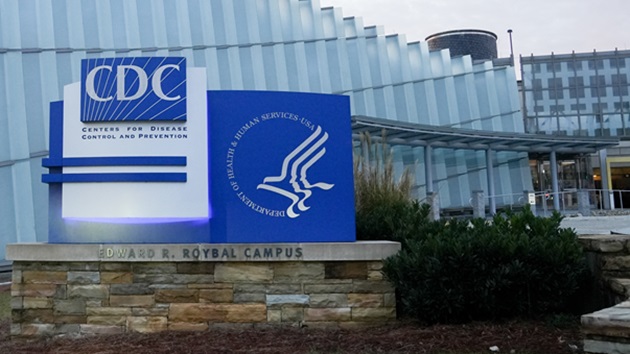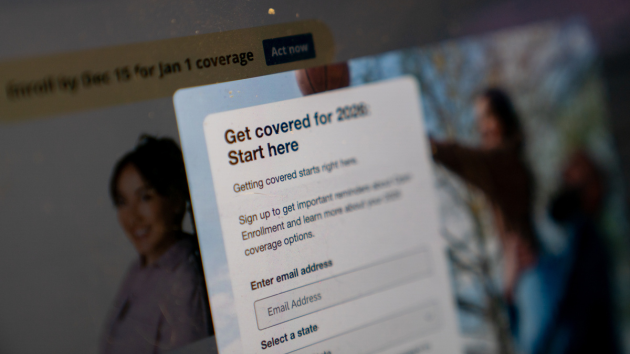LGBTQ people say their mental health is positively impacted when states have protective laws
Written by ABC Audio ALL RIGHTS RESERVED on June 29, 2024
(NEW YORK) — Growing up in the 1990s and early 2000s just outside of Akron, Ohio, Shane Stahl felt it was taboo to talk about being part of the LGBTQ+ community or about LGBTQ+ experiences.
Stahl, 40, who identifies as a gay man, said that although he grew up in an accepting and supporting family, he didn’t feel like it was possible to openly express himself and feared he would be ostracized from his community if he did so.
As lawmakers in Ohio began to introduce — and sometimes pass — more anti-LGBTQ+ legislation, at both the local and the state level, Stahl said it took a toll on his mental health.
“It made me want to leave if I could,” he told ABC News. “It makes you feel very isolated, and I don’t know that this is everybody’s experience, but my experience always kind of was like, ‘Well, what does that person think about me? Do they have an inclination that maybe I’m gay? And if they do, are they going to treat me any differently? Are they going to say something to somebody that can have an effect on my job or my ability to rent an apartment or get a car, or any of those things that we all need to do to survive?’ So, yeah, it was definitely very isolating and scary.”
About a year-and-a-half ago, Stahl got a new job for Equality California — a nonprofit civil rights organization advocating for LGBTQ+ Californians — and moved to West Hollywood. He said being able to live in an accepting community made him feel welcome and improved his mental health.
Seeing the increase in anti-LGBTQ+ legislation “definitely was part of the motivation to leave Ohio and come to a place where I knew that there were strong laws on the books, that I knew I would be protected as a gay person,” he said. “Coming from a very suburban northeastern Ohio experience, it feels there’s a sense of peace I have now about my life that I didn’t necessarily have before.”
While anti-LGBTQ+ legislation can have a harmful effect on mental health, experts and LGBTQ+ rights advocates say legislation that strengthens protections for LGBTQ+ people can do just the opposite as well as bring a sense of acceptance and belonging.
LGBTQ+ people at higher risk of mental health struggles
Research has shown that LGBTQ+ people are more likely to experience mental health struggles than those who are heterosexual or cisgender.
LGBTQ+ individuals are 2.5 times more likely to have depression and anxiety or to misuse substances compared with heterosexual individuals, according to the American Psychiatric Association.
Additionally, LGBTQ+ youth are at increased risk of suicidal thoughts and ideations as well as attempted suicide.
However, experts say there is nothing that intrinsically puts LGBTQ+ people at higher risk of mental health challenges or suicide, and that it’s largely brought on by stigma, biases and discrimination.
“LGBTQ people are not at higher risk for suicide or other mental health challenges because of anything inherent in who we are. It’s about how we’re treated,” Casey Pick, director of law and policy for the Trevor Project, a nonprofit focusing on suicide prevention efforts among LGBTQ+ youth.
These biases and discrimination can take shape as anti-LGBTQ+ legislation including forced outing in schools, school sports bans, banning gender-affirming care for minors, criminalizing drag performances, book bans and limiting the ability of LGBTQ+ people to foster or adopt children.
In 2023, a FiveThirtyEight analysis found more than 100 anti-LGBTQ+ laws have passed in the last five years with more than half of them passing last year.
More than 500 anti-LGBTQ+ bills have been introduced throughout the 2024 legislative session, according to the American Civil Liberties Union (ACLU). Such policies can have a negative impact on mental health.
Pick, who identifies as lesbian, said she remembers when the U.S. was debating marriage equality. In California, in 2008, lawmakers were debating Proposition 8, which was a ballot measure that would have added a state constitutional amendment banning same-sex marriage.
“I remember being in my early 20s when California was actively debating Proposition 8, and so the constant onslaught of negative ads that would portray people like me, gay people, just trying to have a family as being a threat to children, a threat to family was just a constant negative grind on my mental health,” she said.
As anti-LGBTQ+ laws and policies have been enacted, many people — and some in cases their families — have left their home states to move to more protective states.
“Nobody should feel that they can’t live and call the place they want to call home because of who they are or who they love,” Stahl said. “The goal should not be to relocate these people; the goal should be let’s make their communities inclusive and welcoming.”
Pro-LGBTQ+ legislation positive for mental health
While more research is needed to better understand the full effects that protective legislation can have for LGBTQ+ people, studies have shown pro-LGBTQ+ legislation can have a positive impact on mental health.
One 2018 study found that sexual minority men were more likely to report poor/fair health in states with limited protections compared with heterosexual counterparts. But in this study protective state laws made no difference among sexual minority women who were more likely to report poor/fair self-rated health compared to their heterosexual counterparts in states with both comprehensive and limited protections.
A 2016 study of transgender veterans found those living in states with employment nondiscrimination protections were 26% less likely to have mood disorders and 43% less likely to practice self-harm.
“We know that living in a community that is safe, affirming and accepting of who you are, directly correlates to lower rates of suicide to better mental health outcomes,” Pick said. “That looks like safe schools; that looks like access to necessary health care; that looks like just basic equality in day-to-day life.”
Pick said she was heartened when the conversation around same-sex marriage in the U.S. started shifting in a positive direction.
She contrasted her feelings in 2008 “to just how good it felt, when we started seeing in 2012, those ballot measures going the other way. It was still exhausting to be part of a political campaign that I didn’t ask for, but on the days that we saw that we won those elections, that people were accepting us, that were welcoming LGBTQ people in the community, that made a difference.”
Stahl said he often jokes that moving to a state like California, with its wider slate of LGBTQ+ protections, felt “like a different planet.”
“I walk around my city, and I see businesses that have gay pride flags and pride flags in their windows,” he said. “I see people catering specifically to the LGBTQ+ community; I see a wealth of resources; I see a local and a state government that wants the best for me in my community and is actively working to improve the quality of our lives and let us know that we are welcome and we belong.”
Pick and Stahl recommend that people contact their state lawmakers to push back against anti-LGBTQ+ legislation and advocate for protective legislation.
They add that it is also important to create safe, accepting and supportive communities for LGBTQ+ people.
“Something as simple as be the house where not just your child, but maybe your child’s LGBTQ friends can come over feel safe, get cookies after school, be the place where they know that they can just let down and relax and where they won’t be confronted with the kind of hostility that is all too common out there today,” Pick said.
Copyright © 2024, ABC Audio. All rights reserved.







